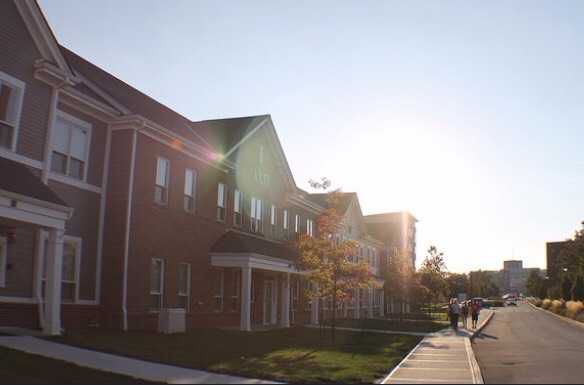Discussions of a changed grading scale have begun at the University, and student input is now being sought before any action begins for possible implementation.
Andy Alt, assistant vice provost of academic affairs, will be visiting the Undergraduate Student Government on Oct. 30 to gather input that will influence the first draft of the proposal to change the current grading scale to include pluses and minuses.
“I think that would be great,” Chandraja Basati, a master’s student in the computer science program, said when made familiar with the proposed new scale.
The discussion for the change began about six months ago.
“This summer as part of our strategic plan…was the creation of an ad-hoc working group…that would be chaired by Andy Alt out of the academic affairs side and Chris Cox from the registrar’s office,” John Fischer, vice provost for academic affairs, said about the process to change the scale.
This ad-hoc committee includes faculty representation from each college.
“The charge of that group is to go back to the individuals they interact with and get feedback from departments and students,” Alt said. “All of which has been pretty positive.”
So far, Alt has visited with two executive board members of USG, the president of GSS, leaders in residence life, such as SMART mentors and RAs and others.
The committee is using schools in the MAC and other public four year schools in Ohio as benchmarks.
“There are only two examples of fourteen that don’t have plus and minus grading,” Alt said.
Along with the University, only Shawnee State and Central State University don’t use pluses and minuses out of the 14 schools the committee is looking at, from the MAC and in Ohio.
“We’re one of three schools in Ohio now…what does it matter?” Nevada Todt, a junior accounting student, said. “The justification has no legitimacy behind it…it’s group-think written all over it.”
He thinks there’s no need for a different system and that one with pluses and minuses would be unfair.
“Someone struggling shouldn’t get docked for getting a 71, they’re already struggling enough,” Todt said.
“When you have someone getting an 89, it is qualitatively different from the person who has an 80,” Fischer said. “And they’re getting the same quality points in our GPA system,” that’s why a lot of faculty are saying it’ll be really great.
One of the members on the committee is Jodi Devine, the associate dean of the Honors College.
“I presented the idea to our Honors Student Advisory Board. This is a representative group of Honors students from each entering class. They discussed the pros and cons of the proposal, offered additional suggestions, then shared the proposal with their friends and classmates to get broader feedback,” Devine wrote in an email.
Devine said honors students generally like the idea of a plus and minus system.
“Their strongest suggestion was that if we move to this model, that all faculty must be more explicit in outlining expectations for grading,” Devine wrote.
Sophomores Cody Miller and Melissa Green are both education majors with differing opinions on the topic.
“I feel like our grading system now…it’s just not fair,” Green said. “If I get a good grade in something I only go up by what, like .5 percent versus if I miss one assignment and then I’m a whole letter grade back.”
Miller, on the other hand, likes the scale as it stands currently.
“I kind of like the fact that there’s no plus or minus because … you have that comfort zone, so anywhere in the 80s you have a B and don’t have to worry about getting a B minus,” Miller said.
As of now, it is not clear whether a proposal will include an option for an A+.
“Michigan and Miami both have an A+ and the A+ doesn’t carry any point signifier, it’s simply there for the faculty member instructor to be able to say to the student ‘I really noticed that you were outstanding,’” Fischer said.
These details, which also include whether there should be any plus or minus below a C, are not of major concern right now.
“Once that proposal happens, it starts it way up through the governance structure” to GSS, USG, the committee on academic affairs, Faculty Senate and ultimately gets approval for fall of 2018 at the soonest, Fischer said.
Alt and Fischer are aiming for a draft to be circulated around Veterans Day, which will incorporate feedback generated from the Oct. 30 USG meeting.
“It (the draft) will be everywhere,” Fischer said. “It will go out to stack holder groups, it will go out to various student organizations, it’ll go out to Graduate Student Senate…it will be everywhere.”
Students are encouraged to offer input during the Oct. 30 USG meeting at 7:30 p.m. in BTSU 308.














